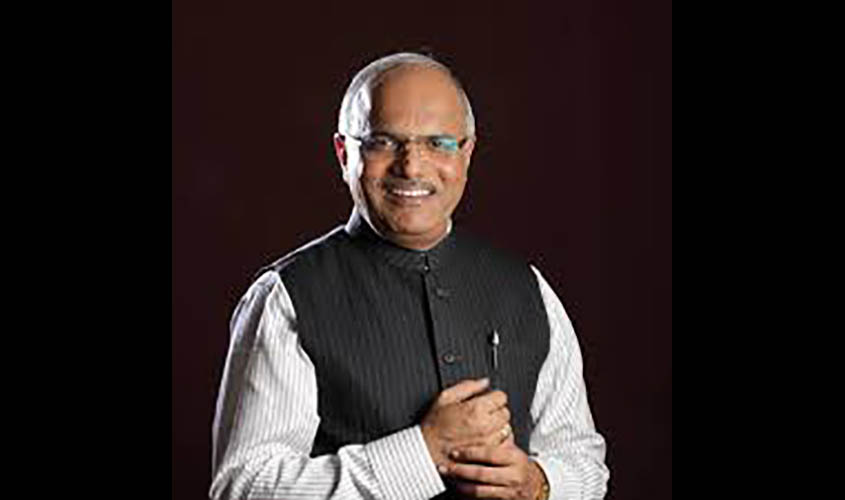ICCR faces challenge of protecting India’s image, to stop it from being labelled as a ‘rape country’.
NEW DELHI: Having completed one year at the Indian Council for Cultural Relations (ICCR) as its president, Dr Vinay Sahasrabuddhe feels a concerted effort is required to convert India’s goodwill into global economic, diplomatic and strategic ties. At the same time, the ICCR faces the challenge of protecting India’s goodwill from being labelled as the “rape country” of the world. In an exclusive interview to The Sunday Guardian, Dr Sahasrabuddhe said the ICCR was taking the lead in bringing various ministries and government agencies together to fight such disrepute, as also to strengthen its organisational structure and ensure equal global representation to Indian artistes and artisans. The Bharatiya Janata Party leader also feels that the left-leaning bias in Indian culture and education system also needs to be contested, and it was important for more powerful presentation of India abroad. Excerpts:
Q: What is the biggest threat to India’s goodwill in foreign countries and how does the ICCR plan to counter that?
A: India is a globally accepted country. There is no country in the world where India’s soft power is not known. However, a narrative is being built against India that it is the rape country of the world, which is totally wrong. Seminars are being conducted in many countries to discuss women’s safety in India and project it as unsafe for women. These include women tourists visiting India from different countries. ICCR is planning a series of seminars across the world to dispel such notions about India as they may prove to be detrimental to India’s goodwill.
Q: Changing the mindset of people in foreign countries and their approach towards India is a bigger challenge. How would you make this possible?
A: We are planning to start the “Understanding India” programme with 25 prominent countries in the world where 10 students from top educational institutes in each of these countries will be invited to India for a first-hand experience of its culture and ethos. We are in the process of selecting 10 students from Iran who will be visiting India to understand its culture, traditions, family values, governance and democratic systems. This exercise will have long-lasting impact as when these students grow into professionals, they have a better understanding and broader perspective of India. An idea of a three-year plan of India’s cultural relationship enhancement with every country has been mooted for more structured, result-oriented programmes and projects.
Q: How can India encash on the goodwill it enjoys globally?
A: A multi-pronged approach is needed to translate India’s goodwill into deep economic, diplomatic and strategic ties with other countries. The ICCR has proposed Niti Aayog to bring together various ministries and government agencies to work in this direction. Further, democracy being an inseparable part of Indian culture, a series of seminars called “Delivering Democracy Seminars” are being conducted at key opinion-making nations of the world.
Q: But how would you change the left leaning cultural bias regarding India?
A: This is a long process. The left-leaning bias on Indian culture, history and education system needs to be contested. The decisions taken at the level of the government
Q: What are the changes you have attempted to bring about in ICCR’s functioning?
A: Adding more teeth to the organisation and making its functioning more result-oriented, we have set up a committee to prepare a new draft of the 50-year old Constitution of the ICCR. Also, draft of a New Vision and Mission Document for ICCR has been prepared and wide-ranging discussions are going on to make it more effective.
Q: What is the plan for inclusive representation of various Indian artistes, artisans in India and abroad?
A: Nearly 5,000 groups and individuals are empanelled with the ICCR, but only about 200 of them get the opportunity to portray Indian art and culture abroad every year.
The process of selecting these performers is vague. For instance, 128 out of the 178 cultural groups from Rajasthan have visited different countries, but no artiste from Chhattisgarh has ever visited any country. This disparity has to be removed and the selection process will be made more transparent. Artistes from all states must get equal opportunity across all age groups and genre. The artistes performing in foreign countries will also be trained accordingly so as to communicate more effectively.

